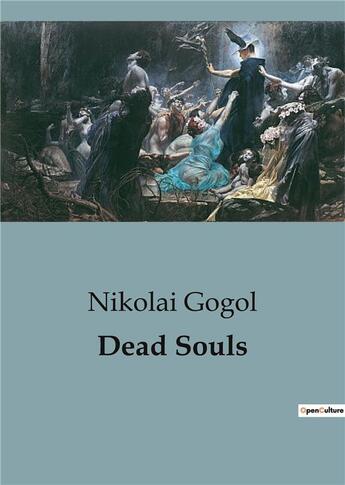-
Date de parution : 19/06/2023
-
Editeur :
Culturea
-
EAN : 9791041816972
-
Série :
(-)
-
Support :
Papier
Résumé:
To the door of an inn in the provincial town of N. there drew up a smart britchka-a light spring-carriage of the sort affected by bachelors, retired lieutenant-colonels, staff-captains, land-owners possessed of about a hundred souls, and, in short, all persons who rank as gentlemen of the... Voir plus
To the door of an inn in the provincial town of N. there drew up a smart britchka-a light spring-carriage of the sort affected by bachelors, retired lieutenant-colonels, staff-captains, land-owners possessed of about a hundred souls, and, in short, all persons who rank as gentlemen of the intermediate category. In the britchka was seated such a gentleman-a man who, though not handsome, was not ill-favoured, not over-fat, and not over-thin. Also, though not over-elderly, he was not over-young. His arrival produced no stir in the town, and was accompanied by no particular incident, beyond that a couple of peasants who happened to be standing at the door of a dramshop exchanged a few comments with reference to the equipage rather than to the individual who was seated in it. Look at that carriage, one of them said to the other. Think you it will be going as far as Moscow? I think it will, replied his companion. But not as far as Kazan, eh? No, not as far as Kazan. With that the conversation ended. Presently, as the britchka was approaching the inn, it was met by a young man in a pair of very short, very tight breeches of white dimity, a quasi-fashionable frockcoat, and a dickey fastened with a pistol-shaped bronze tie-pin. The young man turned his head as he passed the britchka and eyed it attentively; after which he clapped his hand to his cap (which was in danger of being removed by the wind) and resumed his way. On the vehicle reaching the inn door, its occupant found standing there to welcome him the polevoi, or waiter, of the establishment-an individual of such nimble and brisk movement that even to distinguish the character of his face was impossible.
Donner votre avis











